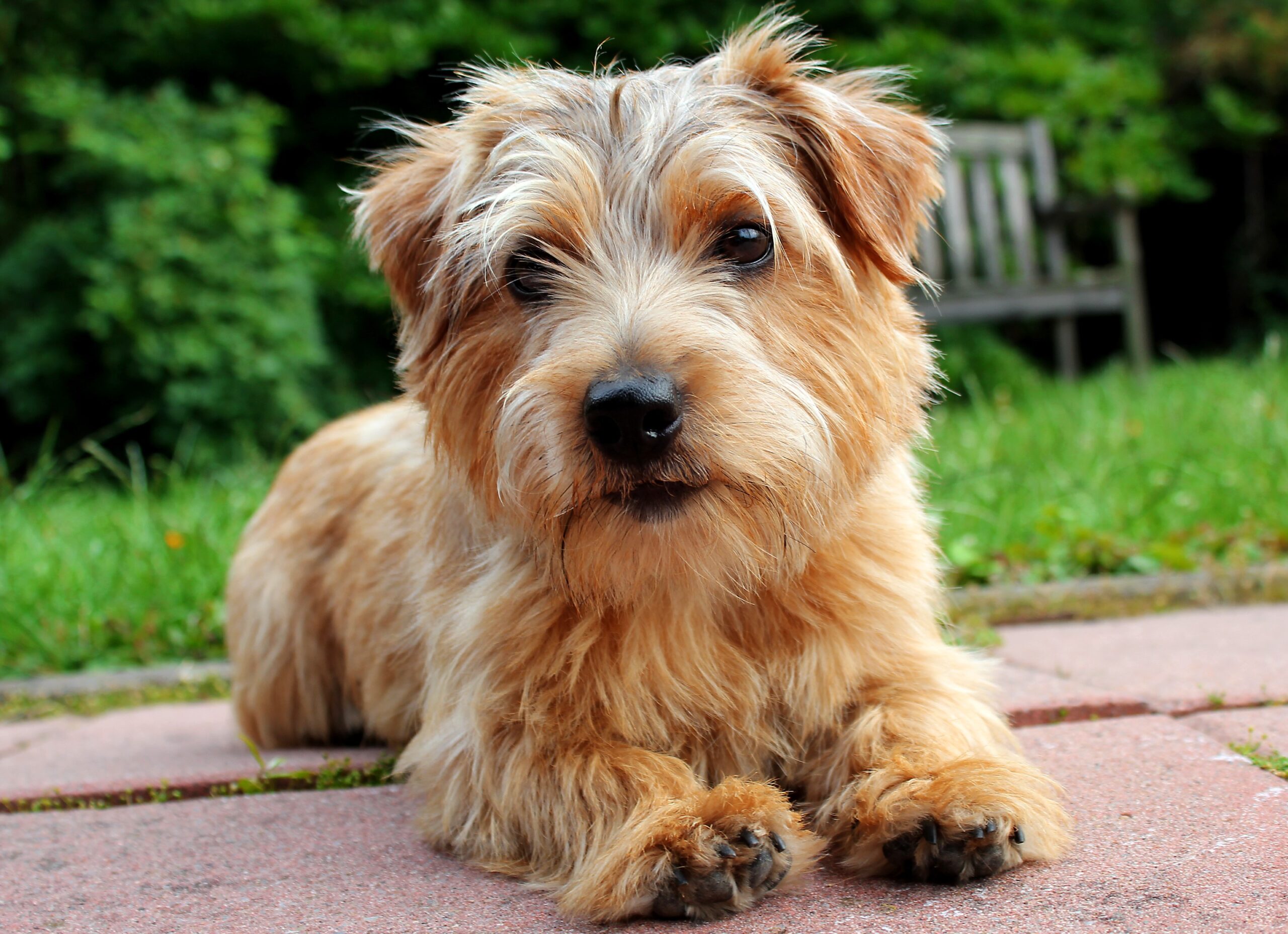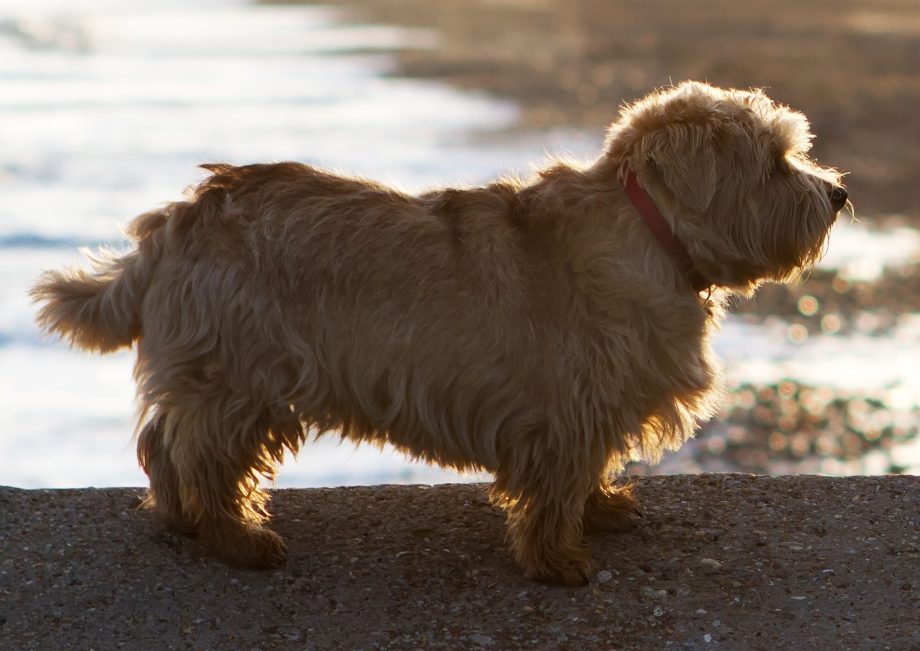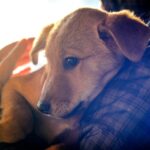The Norfolk Terrier, is the smallest of the working terriers, originating in Norfolk and sharing its heritage with the Norwich Terrier.
The two breeds can be distinguished by their different ears, with the Norwich Terrier having pricked ears and the Norfolk having folded ears. They are the smallest of the working terriers and are well-proportioned agile little dogs. They have a tough, straight and wire-haired coat which is most typically red, wheaten, grizzle and black and tan. Norfolks might be small, but this is a tough, confident and feisty little dog with bags of personality. They are always full of energy, ready for their next adventure and will thrive on lots of human company. They love people and children, which makes them super family pets. They also get on well with other dogs and will cohabit with cats if raised with them, although they should be kept away from other small furry household pets. As with many terriers, the Norfolk can be prone to mischief and certainly needs to be kept busy. A bored Norfolk will dig, chew and bark. They love their exercise, although with their strong hunting instincts they may disappear on walks, and may be best kept on a lead. These little dogs pack a lot of personality and energy and make super and fun companions, as well as great family dogs.
History

The Norfolk Terrier was developed in the East Anglia region of England, as a working terrier used as barn dogs to hunt vermin. Previously they were classified as the Norwich Terrier, although there were two distinct varieties, one with pricked ears and one with folded ears. In 1964, the former retained the name and the latter was categorised as its own breed, taking the name the Norfolk Terrier.






